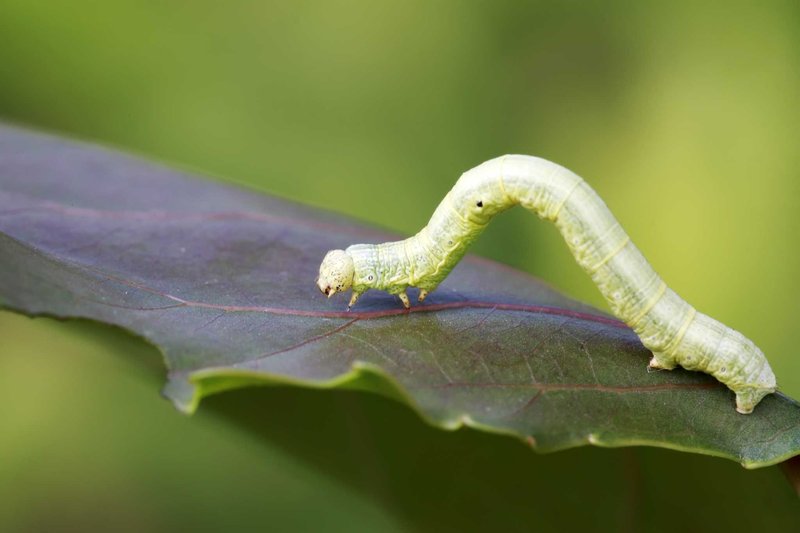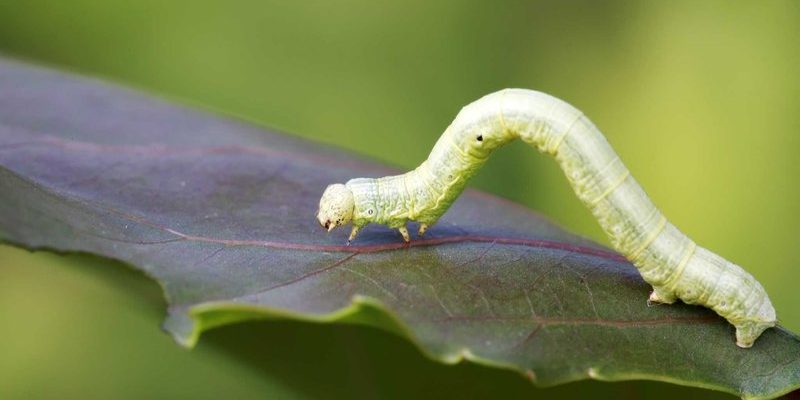
Now, you might be wondering: *Can we actually farm inchworms specifically for bird food?* The short answer is yes, but it comes with its own set of challenges, much like growing your garden veggies. In this article, we’ll dive into the why and how of farming inchworms for birds, exploring whether it’s a feasible option for bird enthusiasts or hobbyists.
What Are Inchworms?
Inchworms are the larvae of moths, particularly from the geometrid family. You can find them crawling along branches and leaves, making them easy targets for hungry birds. They have a fascinating way of moving—like little measuring tapes, hence the name “inchworm.” These caterpillars have a unique body structure that allows them to extend and contract, which gives them their infamous inching motion.
You’ll often notice them during the spring and summer months when they’re most active. They feed on a variety of leaves, making them important components of the ecosystem. Although they may seem insignificant, their role as a food source makes them a vital part of the food chain, particularly for birds.
Why Farm Inchworms for Bird Food?
Farming inchworms for bird food can seem like an unconventional idea, but it has its merits. Here are a few reasons why you might consider this:
- Nutritious Snack: Inchworms are packed with protein, making them an excellent source of nutrition for birds. Many birds need a protein-rich diet, especially during breeding season when they feed their young.
- Easy to Raise: Compared to other insects, inchworms can be relatively easy to farm. They require simple care and can thrive on various plant leaves.
- Cost-effective: If you have a steady supply of inchworms, you save money on bird feed. Plus, there’s satisfaction in providing your birds with home-grown snacks!
When you think about it, inchworms are nature’s fast food for birds. They’re a quick, easy option for anyone looking to support backyard wildlife.
Setting Up an Inchworm Farm
So, how do you even get started with an inchworm farm? It’s not as complicated as you might think. First, you’ll want the right habitat. Inchworms thrive on the leaves from plants like oak, maple, and birch trees. You’ll also need a container that allows air circulation but keeps them safe from predators.
Here’s a simple step-by-step guide to setting up your inchworm farm:
1. Choose Your Container:
– A large plastic bin or glass aquarium works well. Just ensure it has proper ventilation—like small holes on the top.
2. Gather Leaves:
– Collect fresh leaves from the host plants. Make sure they’re clean and pesticide-free. Inchworms are picky eaters!
3. Introduce the Inchworms:
– You can find inchworms in your backyard or purchase them from specialty suppliers. Add them gently to the container with the leaves.
4. Maintain the Environment:
– Keep the habitat moist but not overly wet. Mist the leaves lightly if necessary. Check for mold or spoilage regularly.
Farming inchworms is a delightful little project that connects you with nature. Who knew that your backyard could be a mini-insect sanctuary?
How to Care for Inchworms
Caring for inchworms is pretty straightforward, but there are a few key points to remember. The right care can make a huge difference in how well they thrive.
– Food Supply: Regularly provide fresh leaves. Inchworms love to munch, and they can devour a handful of leaves quickly. If the leaves look wilted or brown, replace them!
– Temperature & Humidity: Keep the container in a cool, shaded area. High temperatures can stress them out. Ensure there’s some humidity, but avoid waterlogging.
– Cleanliness: It’s important to keep their habitat clean. Remove any waste or uneaten leaves to prevent mold or other bacteria from forming.
Inchworms are hardy little creatures, but they still need a bit of TLC to flourish. Think of it as tending to a small garden—small tweaks can lead to healthy growth!
Feeding Your Birds Inchworms
Once you’ve successfully farmed a batch of inchworms, the next step is sharing them with your feathered friends. Birds can feast on them fresh, or you can dry or freeze them for later use. Here are some essentials to consider:
– Fresh Inchworms: Simply toss them on the bird feeder or scatter them on the ground. Birds like to forage, so make it easy for them to find their tasty treat.
– Dried Inchworms: Drying them out can extend their shelf life. Birds still get the protein they need, just in a crunchy form.
– Freezing: This method is handy for those who want to store inchworms for winter months. Make sure they’re placed in an airtight container to avoid freezer burn.
Birds like different feeding styles, so observe which method they prefer. You might find that your backyard transforms into a lively little feast zone!
Common Challenges in Inchworm Farming
Farming inchworms, while rewarding, isn’t without its challenges. Here are a few hurdles you might encounter:
– Predation: Unfortunately, other critters love inchworms too! Keep an eye out for ants, spiders, or birds that might invade their space.
– Pest Infestation: Watch for pests like aphids or mold in the habitat. Keeping the environment clean will help deter these invaders.
– Food Scarcity: If you run out of leaves, your inchworms will be hungry. Plan ahead and have a backup supply of fresh leaves handy.
Every farmer faces challenges, and inchworm farming is no different. But with a little patience and care, you can overcome these issues and enjoy the process!
Is Farming Inchworms Worth It?
You might still be wondering: *Is it really worth the hassle to farm inchworms?* Honestly, it depends on what you’re after. If you love birds and enjoy watching them thrive, then farming inchworms can be a rewarding experience.
Think of it this way: you’re not just feeding birds; you’re actively participating in their wellbeing. Plus, you’ll have a chance to learn about the life cycle of inchworms and the little beauties of nature.
In the end, the joy of seeing birds flourish in your backyard can make those tiny challenges worth it. Isn’t that what it’s all about—embracing the nature around us and finding magic in the smallest things?
Farming inchworms could be a fun and beneficial venture for bird lovers. So, why not give it a try? You might just become a proud inchworm farmer before you know it!

